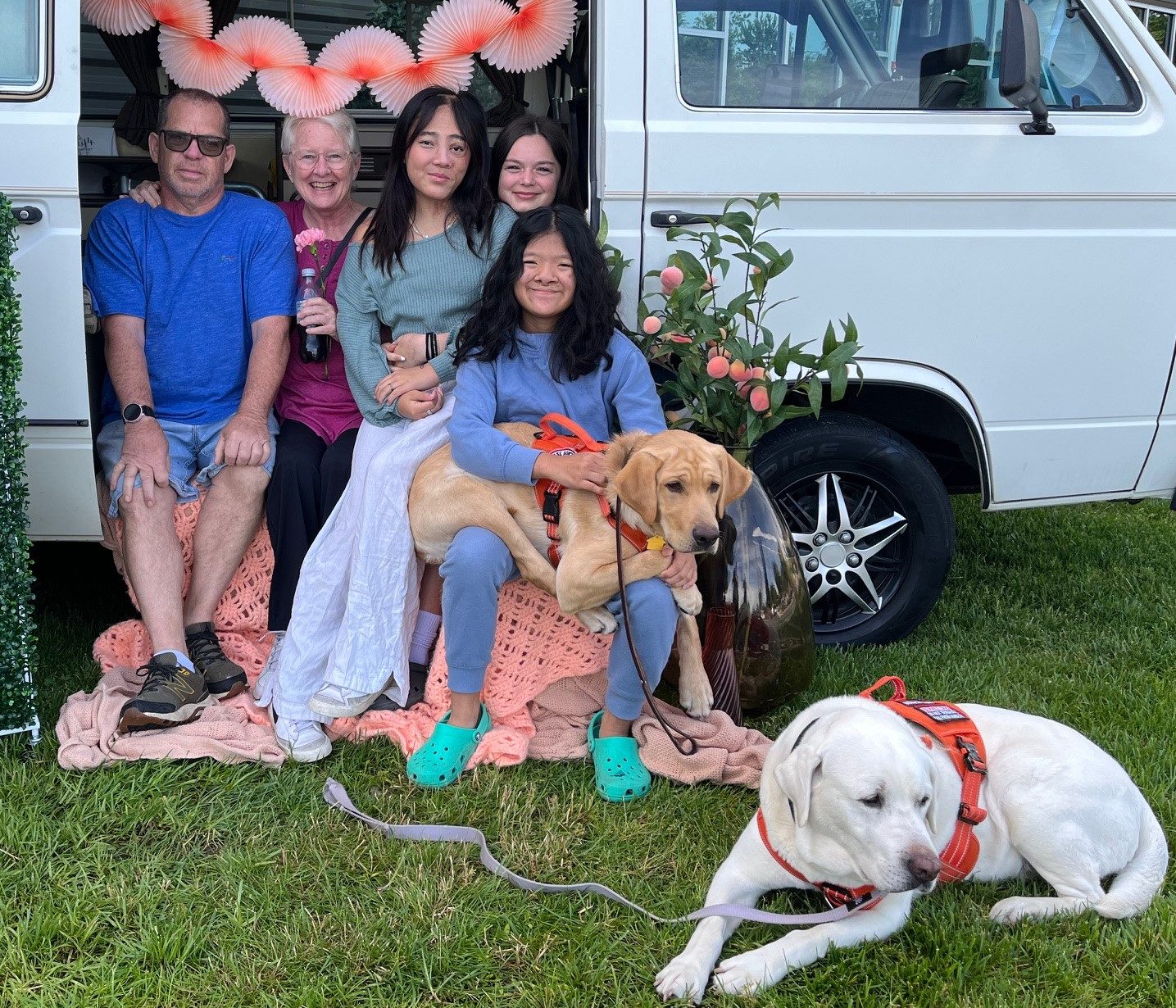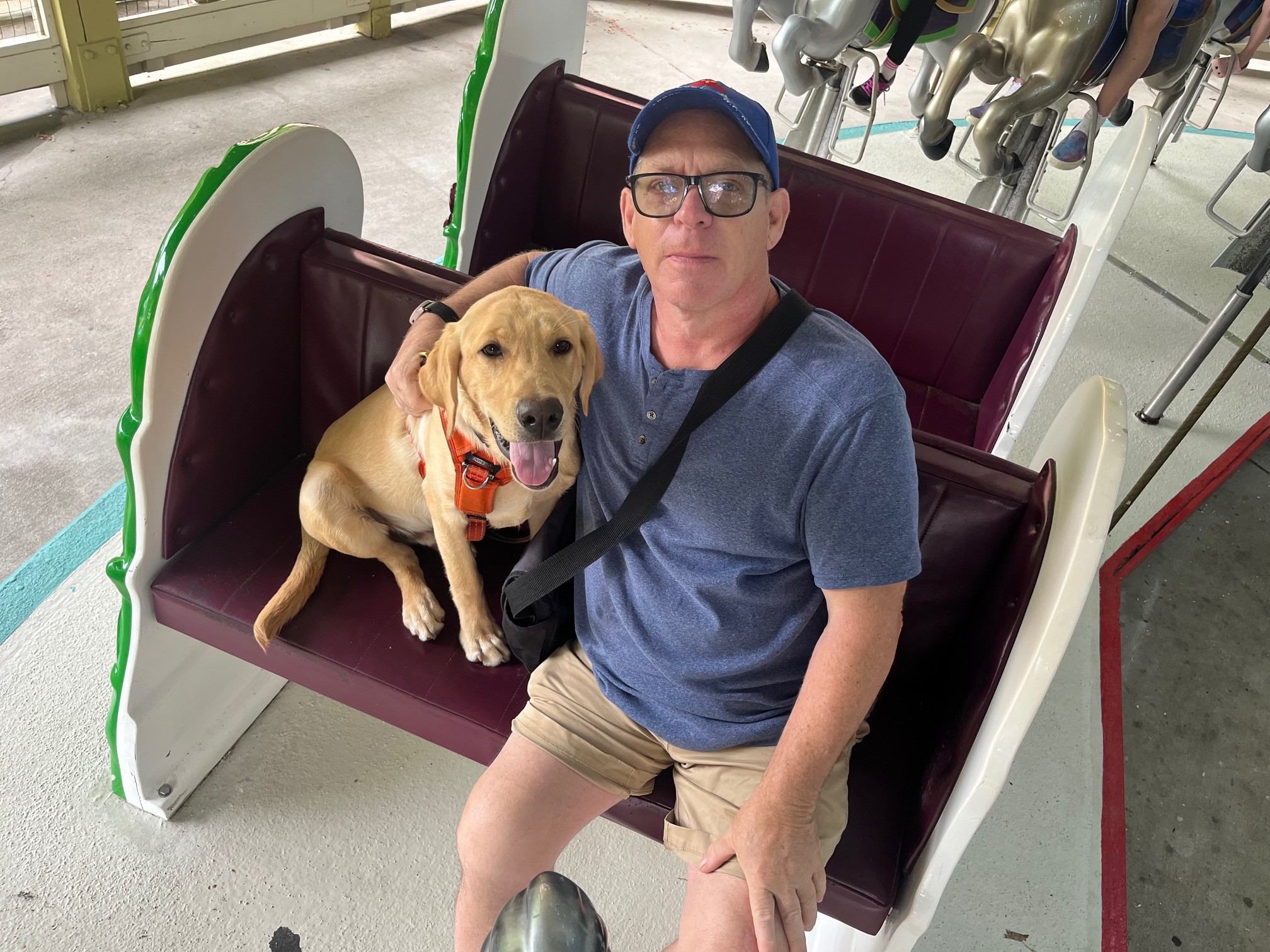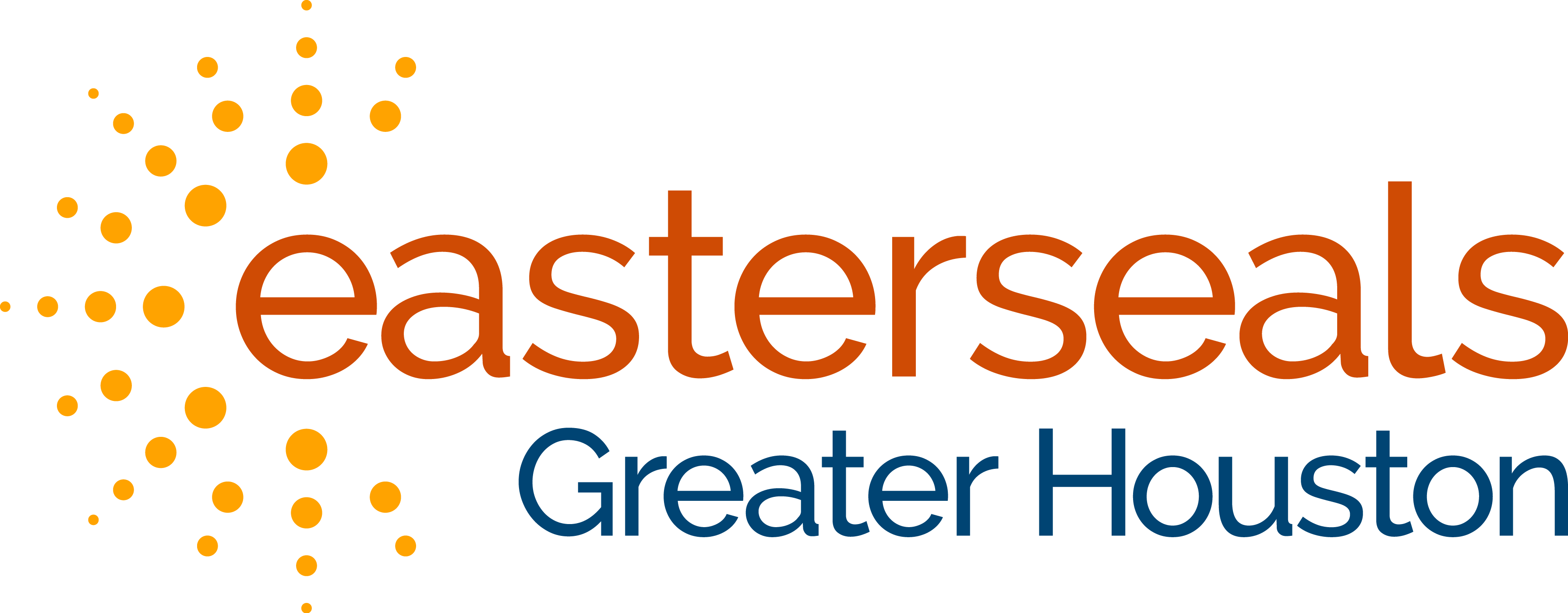Service Dogs for Veterans with PTSD
June is Veterans Mental Health Month and PTSD Awareness Month. Easter Seals Greater Houston’s Veterans Program helped Tom, a veteran with PTSD, train his first service dog back in 2017. In this interview with Tom and his wife, Marjorie, we will explore how Tom’s service dog helps him manage his PTSD, what training a service dog entails, and some things to consider if you’re thinking about getting a service dog yourself.
Q: How does your service dog help you manage mental health?
Tom: I’m prone to PTSD episodes that may include panic attacks or blackouts. Norman knows my triggers and smells. He licks me or lies on my feet to bring me out of it.
Marjorie: Norman creates space for Tom, which I admit is an adjustment for me. When we went to (Washington) DC, it bothered me how Tom and Norman were “in everyone’s way.” It didn’t immediately dawn on me that this was a necessary accommodation. I naturally like everyone to move closer together: it’s my need for control and protection.
Q: Speaking of adjustments, Norman is getting close to retirement and you’re training another dog, Gus, to take over his job. How is that going?
Marjorie: It’s a learning curve, not to mention a first-time experience: we did not train Norman ourselves. Gus is still a puppy and I’m still getting used to having a puppy around, as is my [non-service] dog Toby. Meanwhile, our youngest daughter Olivia, who is good with animals, has really bonded with Gus—the challenge there is we can’t have her around for training sessions, because it’s a distraction. Tom and Olivia do butt heads occasionally over what Gus needs to do.
Tom: Service-specific training is harder than basic obedience training. Gus has to learn my PTSD triggers and what an episode “smells” like. To teach him this, I need to deliberately induce episodes—not a pleasant experience. Training Gus takes a lot of time and energy.
[See also, “How Service Dogs Relieve PTSD,” by Guardian Angels Medical Service Dogs.]
Q: What advice do you have on choosing and managing a dog? Especially for veterans and others who need a dog specializing in mental-health issues?
Tom: I think a calm and “lazy” dog is a must: Labradors are a great breed. We were lucky to have a contact, Allie from My Service Dog, who has a way of picking the right dog for the right person.
Marjorie: Definitely get someone with experience to help you. Working [from Virginia] with Allie [in Houston], we’ve done a lot of the training virtually; but first, Allie spent two in-person days with Tom and Gus. It really was valuable in giving Gus a head start, and giving Tom confidence that he could train Gus.
 Q: What do people commonly expect of a service dog? Have you seen any examples of unreasonable expectations—not necessarily in your own family?
Q: What do people commonly expect of a service dog? Have you seen any examples of unreasonable expectations—not necessarily in your own family?
Tom: I think too many handlers see the dog’s behavior as no one else’s business. A service dog needs to obey the rules all the time, leaving no question this is a properly trained dog. Often, a dog acts up or misbehaves, and that makes it harder for service dogs in general to be accepted.
Marjorie: Over the last seven years, we have seen our rights to a mental-health service dog cut back, because other people took advantage of the system. It is so frustrating. When we see others with their service dogs, it’s easy to tell who has been trained and who hasn’t. If the dog is barking or eating food in a restaurant, that’s not a properly trained service dog.
Q: A real service dog fills the roles of ambassador, assistive technology, and friend. Can you share any special moments from your service-dog experience?
Tom: Norman has a heart and nose for people who are having a hard time, or dealing with anxiety. And he actively offers help: if I am okay, and he senses that someone else needs comfort, he will go lie on their feet. It is awesome to see.
Marjorie: We can be out in the community, and people I don’t even know will come up and say hi to Norman. It’s good to know he is loved.
- Katherine Swarts, BridgingApps, Digital Content Writer, Easter Seals Greater Houston
Thank you to our sponsors for supporting our services for veterans, active service members, and their families - Blue Cross Blue Shield of Texas, The Bob Woodruff Foundation, The Coleman Family, Comcast Houston Region, Enrico and Sandra di Portanova Charitable Foundation, F.W. Bert and Mae Dean Wheeler Foundation, The George Foundation, JP Morgan Chase, Deena L. Morgan, Darri Ofczarzak, Phillips 66, Powell Foundation, RDM Positive Impact Foundation, Ruth Jones MacDonald Charitable Trust, The Sartain and Tamez Family Trust Fund, SpeakEZ Communications, Texas Health & Human Services, Texas Veterans Commission, Texas Veterans + Family Alliance, United Way of Greater Houston, Whalley Family Foundation, and the Youth Action Council.
